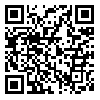BibTeX | RIS | EndNote | Medlars | ProCite | Reference Manager | RefWorks
Send citation to:
URL: http://refahj.uswr.ac.ir/article-1-2381-en.html
Introduction: The Community-based participatory evaluation is an applied scientific research that invites and encourages the people to full participation in evaluating their own community health programs with common objectives, in different stages, planning, implementing or concluding the programs. Collaboration of the Stakeholders develops their feeling of belonging to their community. It also gives them a new positive definition of evaluation programs, instead of a source of anxiety for blaming or rejecting. The involved people do the evaluation of their own programs instead of submitting this task to external evaluators. In other words, the main objective of participatory evaluation is empowering the community in planning, implementing and concluding their own lives and career programs.
Method: This research was conducted to utilize the “evaluation framework for community health programs”, as a participatory evaluation model for the community health action agencies’ programs, with regards to the “people to people” approach. The evaluation framework was planned and implemented in a community health Action Agency called “Mehr Tehran Pars” located in the East of Tehran, metropolitan region 4, with almost 63703 populations.
Findings: Among the six success indicators, pointed out by evaluation participants (financial resources, human resources, service providing, communication, operations management and sustainability), the findings showed the maximum scale for capacity of the community health action agency was in operation management (%4.5) and the minimum scale was in supplying financial resources (%2.5). The scale for people satisfaction in cooperating with the agency was %50 and the scale for people satisfaction in the agency’s service providing was %48.
Discussion: The participatory evaluation proved that the agency needs some improvement and empowerment. The method of evaluation also could produces some valuable knowledge in full participatory working. In addition, the strength and weaknesses of the programs were explained to take into account in the future. The lessons were learned in this method by the participants were gathering success stories, using the gathered informations and supporting the agency’s changes and improvement.
Received: 2016/03/5 | Accepted: 2016/03/5 | Published: 2016/03/5
| Rights and permissions | |
 |
This work is licensed under a Creative Commons Attribution-NonCommercial 4.0 International License. |





